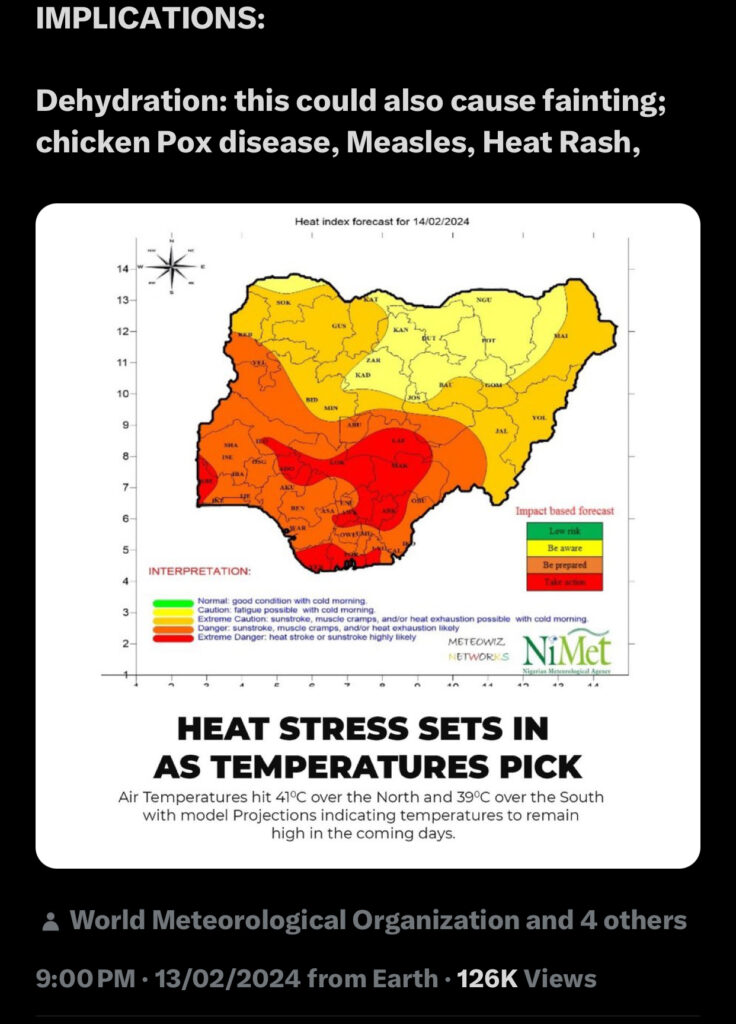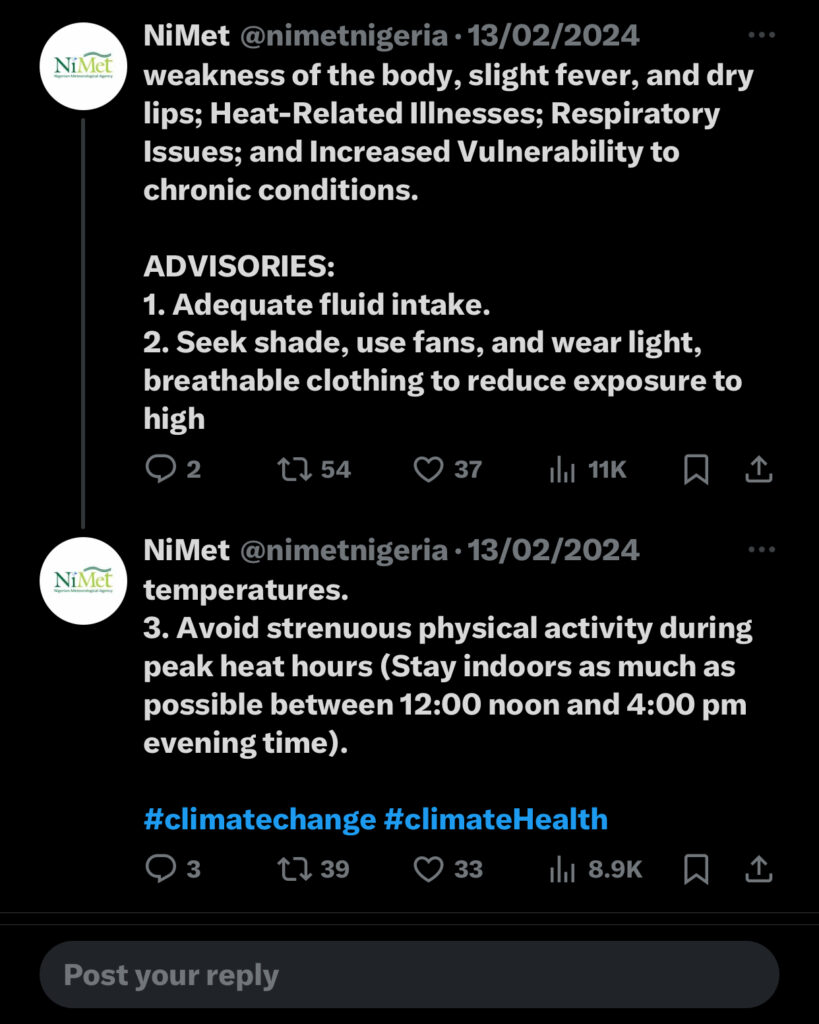
Never did I think I’d regret parting with my sleeveless tops as a final year student who was trying to get into her ‘corporate girlie’ era but this heat wave has got me reconsidering.

The normal human body, which has an average temperature of 36.5-37.5°C, gets medical practitioners frantic at 39-41°C. Now what should we say about a country whose annual average temperature has changed from 26.9°C to 39-41°C in recent times? At this rate, Mali, the country on earth with the hottest weather is trying to keep up with Nigeria’s.
Who was prepared for this?
I mean, we know Nigeria can get hot, but this level of heat took us by surprise. Maybe except for the meteorologists. But that again might be hard to believe as a TVC news reporter said it was ‘unprecedented’ for us all in the country.
People across different states have complained that the power shortage, limiting artificial cooling, makes it even worse to bear. This situation compounds the problem of Nigerians who were trying to stay afloat despite the already ongoing inflation. Interestingly, many more have spoken about poor sleep, poor productivity and reduced business returns. Besides, there’ve been several warnings about health implications from NiMET and other reputable outlets. Who would have thought that weather conditions could go a long way to affect many spheres of life-health, agriculture and the economy?


What is responsible?
The heat wave in Nigeria, like many around the world, is exacerbated by global warming. Rising average temperatures are directly linked to climate change driving heat waves in West Africa. Scientific studies indicate a noticeable rise in regional temperatures in recent decades. Nigeria’s heavy reliance on stable weather conditions across sectors like agriculture exacerbates vulnerability to prolonged heat waves, while reduced rainfall patterns and the urban heat island effect in cities like Lagos escalate temperatures further.
Where you come in
People are angry, people are irritable, people are cranky. In this period, try dey maintain your lane before you collect😅. But, amidst the discomfort lies an opportunity for reflection and action. As we grapple with the immediate effects of these heat waves, it becomes clear that our response must extend beyond individual measures like staying hydrated or wearing sunglasses. It encompasses a collective effort to address the broader context of climate change.
It’s a call to advocate for sustainable practices and to hold our leaders accountable for effective climate action. It’s a reminder that our actions today will shape the world we pass on to future generations.
Perhaps none of us were fully prepared to confront the magnitude of Nigeria’s heat waves. However, in our collective response lies the promise of resilience and adaptation. Am I suggesting you become an environmental activist? No. What do I care? Just thought to let you know.
With this knowledge, do as you will.
To check out other opinion pieces, click here.



Leave a Reply